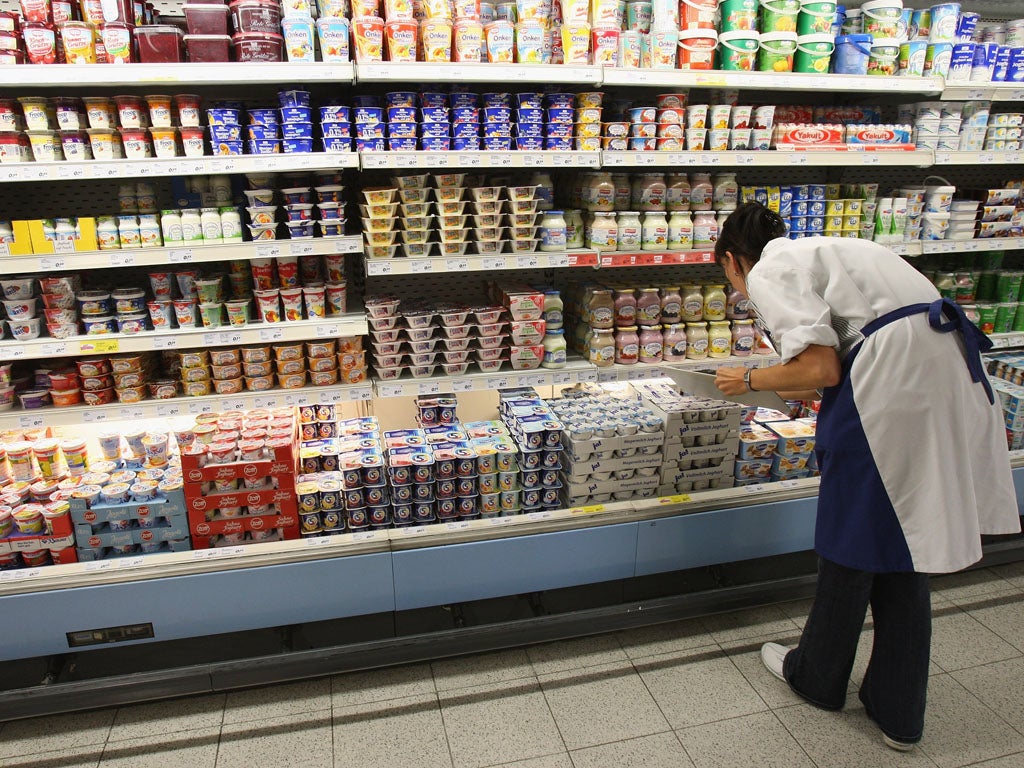Goodbye to the Big Society: Money comes first, a better world second
The Tories do love someone who stacks shelves. They represent enterprise

Your support helps us to tell the story
From reproductive rights to climate change to Big Tech, The Independent is on the ground when the story is developing. Whether it's investigating the financials of Elon Musk's pro-Trump PAC or producing our latest documentary, 'The A Word', which shines a light on the American women fighting for reproductive rights, we know how important it is to parse out the facts from the messaging.
At such a critical moment in US history, we need reporters on the ground. Your donation allows us to keep sending journalists to speak to both sides of the story.
The Independent is trusted by Americans across the entire political spectrum. And unlike many other quality news outlets, we choose not to lock Americans out of our reporting and analysis with paywalls. We believe quality journalism should be available to everyone, paid for by those who can afford it.
Your support makes all the difference.A moment’s silence, if you please, to mark the passing of the Big Society.
It had been in poor health for some time, but has finally been put out of its misery by the Work and Pensions Secretary, Iain Duncan Smith, during a TV interview on Sunday. A graduate was better employed stacking shelves, unpaid, in a supermarket, Duncan Smith argued, than doing voluntary work for a local museum. Perhaps we should be grateful. The idea behind the Big Society, based on community and generosity, had always seemed an uneasy fit with Conservative values.
Duncan Smith was infuriated that an Appeal Court had upheld the case of Cait Reilly, a geology graduate who, in order to get her back-to-work payments, was forced to give up her voluntary work at a museum and stack shelves instead.
The truth is, Reilly had been behaving in precisely the way which Cameron used to recommend. The idea behind the Big Society was that it would wean people off dependency on the State, encourage neighbourliness and bring communities together. Volunteering for things – running a local museum, for example – would show that, beyond the nanny state and the harsh jobs market, there was another world of work where satisfaction mattered more than pay.
For many conservatives, these must have been dangerously liberal thoughts. If people like Cait Reilly began to discover that there was more to life than being an economic unit, then the whole market-based system of values would start to crumble.
Conservatives do love a shelf-stacker. It is a job which represents enterprise in a strangely pure and beautiful way. Successful industrialists like to recall that they started their brilliant careers stacking shelves; perhaps, during his gap year, Duncan Smith did some stacking himself.
“Smart people”, he said this weekend, should ask themselves when they were next unable to find something in a supermarket, whose job is more important – a geologist or a shelf-stacker.
It is a moronic line of argument, but a very Conservative one. An out-of-work person is better employed doing unpaid grunt-work so that a multinational business makes bigger profits, the thinking goes, than working in her community.
If the Big Society had meant anything, then the back-to-work scheme would have put real emphasis on the voluntary sector. It is there that job-seekers are most likely to learn useful values – a sense of engagement and responsibility.
As “smart people”, they might also conclude that being told to stack shelves for the benefit of Poundland in return for a government benefit is little more than an exercise in cynicism and exploitation.
Twitter: @TerenceBlacker
Join our commenting forum
Join thought-provoking conversations, follow other Independent readers and see their replies
Comments